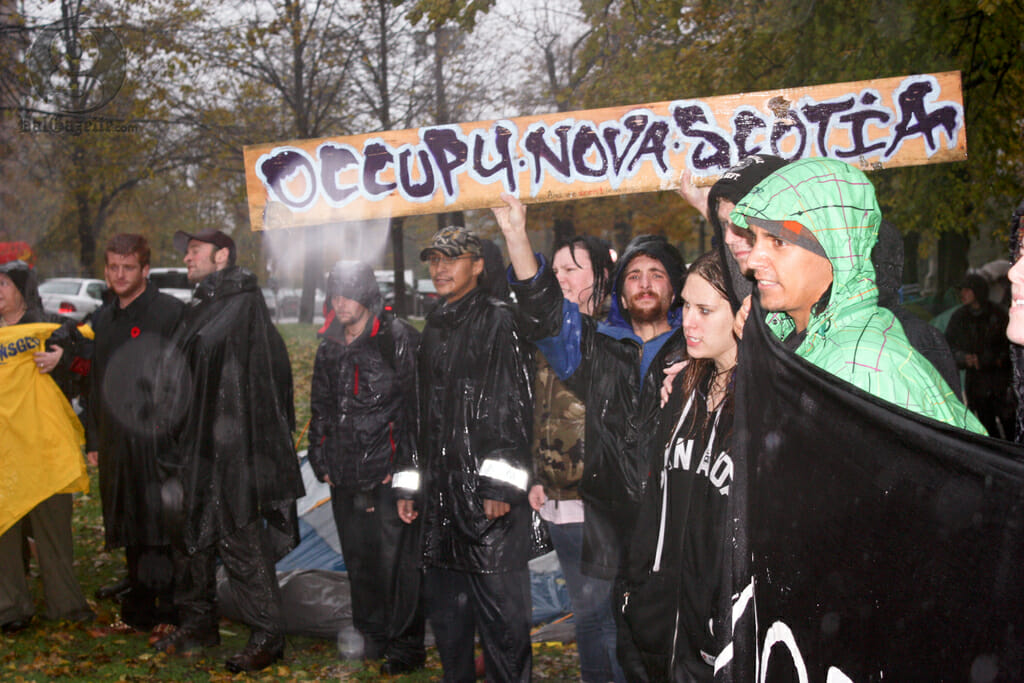
In memorium: Occupy
On a rainy Saturday at the end of September, a cluster of people huddled in the Grand Parade.
On a rainy Saturday at the end of September, a cluster of people huddled in the Grand Parade. Just over a year ago, this place was the heart of the Occupy movement in Nova Scotia.
They were there to mark last year’s eviction on Nov. 11, when the police swept Occupy Nova Scotia from their tents in Victoria Park, arresting 14 people.
For the occupiers, it would become known as the “Remembrance Day eviction”—and a year later, they haven’t forgotten it.
Ian Matheson, one of the key organizers of Occupy NS, says there are no plans to bounce back.
“The idea was the get everyone together for one last time, not to be a real resurgence,” says Matheson.
A “people’s tribunal” on Sept. 29 found the police at fault for failing to respect proper procedures.
Tenting in a space can receive a fine, Matheson said, but no fines were ever issued.
“The police said they were enforcing a law, but then failed to do any of the steps required for enforcing that law,” says Matheson. The tribunal was staged as an act of remembrance.
Many of the protesters have now become involved in new projects related to the objectives of Occupy, whether that’s Solidarity Halifax, an anti-capitalist group, or NSPIRG, a public interest research group.
Kelly Moore, another organizer, has now started an initiative called Come Together Halifax.
On Nov. 4, she put together a winter clothing drive. Moore says she got the idea during Occupy, because people were constantly dropping off clothing. Following the eviction, they donated the clothes to shelters for people in need. Moore says she learned how crucial warm clothes were at this time of the year—and how quickly shelters run out of warm socks.
The idea for the winter clothing drive, while not a resurgence of Occupy, is a “direct result of it,” says Moore.
If he could do the occupation all over again, he says, he’d be “more optimistic about what could be accomplished by Occupy, but less ambitious in our goals for the post-eviction period.”
“Occupy had far more expected of it than its organizers were ever intending to deliver,” he says.
“Many of the protesters were socialists or anarchists or reformed Liberals who wouldn’t be able to agree on one way forward,” says Matheson.
He says Occupy is now on an “organizational hiatus.”
Matheson is quick to respond when people say that the eviction proves that Occupy, and the ideas it created, are dead.
“On the day we began occupying, I was fairly certain there wouldn’t be an occupation by the end of the day. And to my surprise, there was.”
He believes Occupy revolutionized the dialogue around wealth, and that today, it’s much harder to justify large incomes or mass inequality. And they did all this from tents, Matheson says, “in just about the worst conditions you could imagine.”
“It’s like if the Wright brothers had tested their plane in a hurricane and someone said, ‘Oh, flying is impossible.’”







